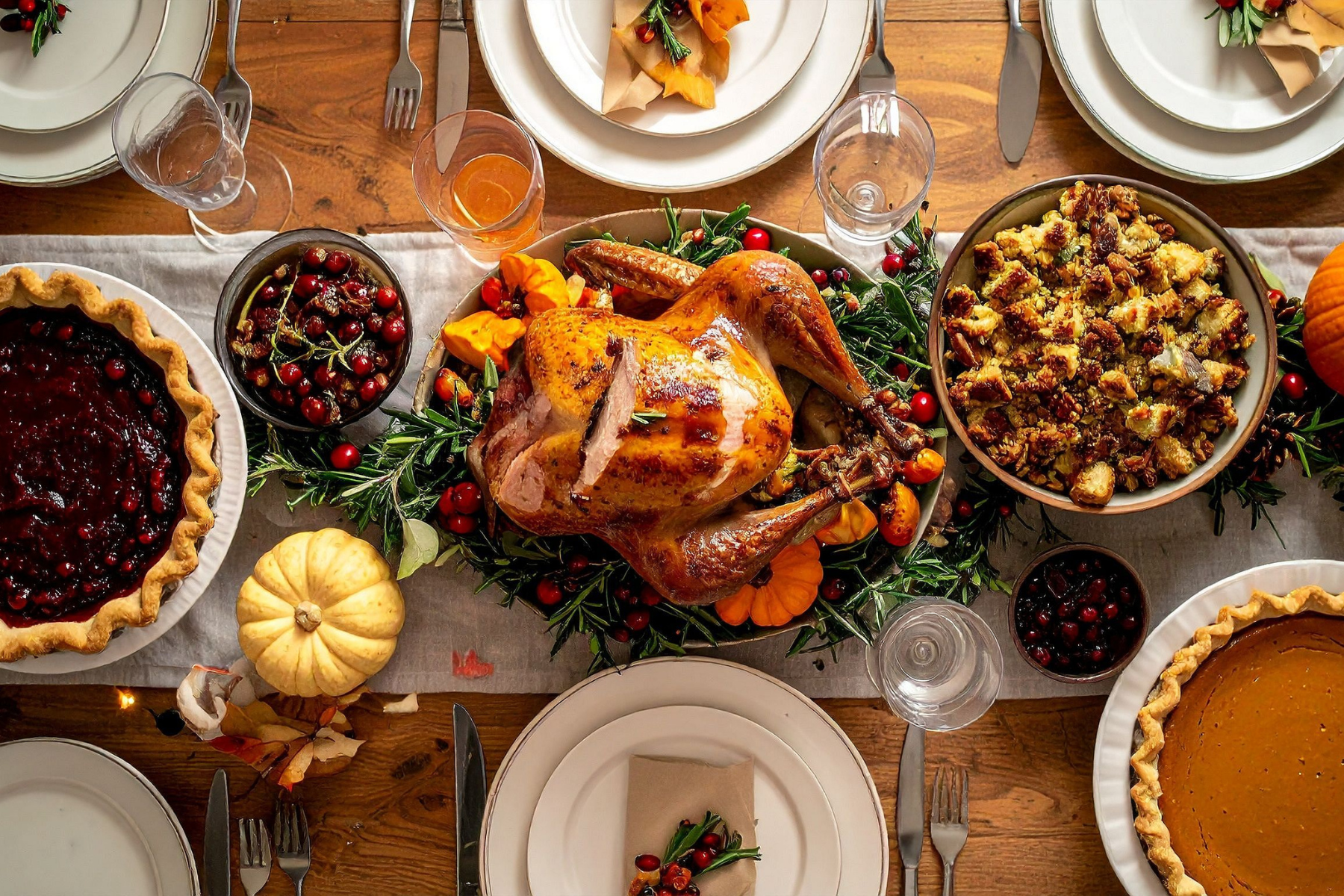
Why Eating Six Times a Day Works Against Human Physiology
We’ve been told to eat six small meals a day to “keep hunger away,” yet biology shows the opposite. Frequent eating keeps insulin high, confuses hunger signals, disrupts digestion, and prevents the body from burning stored fat. This article explains the physiology behind why grazing makes you hungrier and why meal-based, nutrient-dense eating supports real metabolic health.

Holiday Overindulgence Happens. Here Is How to Reset Your Body With Clarity and Confidence
A clear, grounded guide to rebuilding balance after holiday overeating. Learn why your body reacts so strongly when you normally eat clean, how a 24-hour fast can help reset insulin and inflammation, and what to focus on next to stabilize hunger, sleep, electrolytes, and metabolic rhythm. A kind, science-based pep talk to help you return to feeling your best.

Why I Write Evidence-Based Nutrition Articles That Question the System
Decades of nutrition advice have been shaped by industry funding, conflicting interests, and guidelines that no longer reflect human physiology. This article explains why I question mainstream “evidence-based” nutrition, why our nation’s health continues to decline, and why my mission is to share clear, science-based information that empowers readers to understand, question, and reclaim their health.

Avoiding Packaged Foods Protects Your Metabolism: The Case for Choosing Single-Ingredient Nutrition
Packaged foods overload your metabolism with sugars, refined starches, and industrial fats that the human body was never designed to process together. This combination disrupts insulin, blocks fat burning, drives cravings, and contributes to long-term metabolic damage. Choosing single-ingredient foods like meat, eggs, and fish supports stable energy, balanced hormones, and real healing.

Starting With Keto Makes Carnivore Easier: A Kinder, Smarter Way to Transition
Jumping from the Standard American Diet directly into carnivore can shock your metabolism. A low-carb or ketogenic foundation helps your body adjust, regulate electrolytes, and reduce cravings so the transition feels smoother and more sustainable. Here is why easing in often leads to the best results.

You Don’t Need Fruit to Get Vitamin C on a Low-Carb Diet
Most people believe fruit is the only source of vitamin C, but the science tells a different story. When you cut sugar and carbs, your body uses vitamin C more efficiently and doesn’t require as much. Here’s why you won’t get scurvy from skipping oranges.

Calm Autoimmune Symptoms With an Elimination Diet
Many people search for answers when autoimmune symptoms take over their daily life. Your gut drives most of your immune system, and the foods you remove and the foods you keep make a real difference. This guide explains how an elimination diet helps calm inflammation, supported by published research and real stories like Mikhaila Peterson’s. Learn how to start, what to avoid, and how to build a simple plan that helps you lower symptoms and move toward remission without the confusion.

Brain Supporting Foods After 60 for Better Memory and Focus
Your brain needs steady energy, protein, healthy fats, and simple meals as you age. Learn how lowering sugar and choosing nutrient dense foods supports memory, mood, and long term brain health for anyone over 60.

Public Health Alert: Why the Planetary Health Diet Is a Global Mistake Backed by Profit
The Planetary Health Diet is being promoted as the future of sustainable eating, but behind the green marketing are powerful corporations, profit motives, and real human health risks. Learn who funds it and why we must speak out.

An Animal-Based Diet is the Most Bioavailable and Optimal Way to Nourish the Human Body
Bioavailability determines how well your body absorbs and uses nutrients. Animal foods deliver vitamins, minerals, and protein in their most usable forms, while many plant nutrients are harder to access due to antinutrients and conversion losses. A diet centered on meat, eggs, and fish supports energy, brain health, and hormonal balance because these foods align with human biology. Eating animal-based isn’t extreme it’s returning to the diet our bodies recognize and thrive on.

You Should Read The Big Fat Surprise by Nina Teicholz
Learn how The Big Fat Surprise by Nina Teicholz exposes decades of flawed nutrition science, political influence, and the truth about fat. A must-read for anyone seeking real answers about diet and health.

The Dietitian Who Changed Everything: Michelle Hurn’s Story and Why It Matters Now
Registered dietitian and endurance athlete Michelle Hurn exposed the flaws in traditional nutrition education through her book The Dietitian’s Dilemma. After years of pain and anxiety, her n=1 transformation using real food and animal-based nutrition challenged the system she was trained in. Her story proves that healing begins when we question outdated guidelines, trust our biology, and prioritize patient-centered care over policy-driven nutrition.

Surviving Holiday Parties on Low-Carb Without Feeling Left Out
Holiday gatherings don’t have to derail your low-carb lifestyle. Learn simple, practical strategies to enjoy holiday parties, avoid carb-heavy temptations, and keep your energy steady without feeling deprived.

You Need Vitamin D3 and K2 During Winter: The Science Behind Seasonal Supplementation
Learn why vitamin D drops in winter, how D3 and K2 work together for bone and heart health, and what to look for in a clean, third-party tested supplement.

Why the Thanksgiving Food Coma Isn’t Normal: Dr. Boz Explains Metabolic Concussion
That Thanksgiving food coma isn’t normal. Dr. Boz calls it a metabolic concussion—a sign of blood sugar swings, insulin resistance, and inflammation. Learn why heavy holiday meals leave you foggy and tired, and how simple changes can help you enjoy the season without the crash.

How Sleep Impacts Your Metabolism on a Low-Carb, Keto, or Carnivore Diet
Sleep is the foundation of metabolic health. Adults need seven to nine hours of quality rest for hormones, brain function, and recovery to work properly. Low-carb, keto, and carnivore diets can improve sleep once your body adapts, but electrolyte balance, meal timing, and circadian rhythm play key roles. Learn how deep sleep, nutrition, and consistent routines support fat-burning, energy, and long-term wellness.

Why Women Must Demand Low-Carb Options in the USDA Guidelines
The USDA may once again ignore science by excluding low-carb nutrition from the official Dietary Guidelines. Learn why this matters for women’s health, families, and the future of real food education.

The Body’s True Essentials: Fatty Acids and Amino Acids
Your body doesn’t need carbohydrates to survive; it needs amino acids and fatty acids to grow, repair, and thrive. From infancy to old age, protein and healthy fats fuel development, support brain health, balance hormones, and drive healing. Learn why fat and protein are essential for life and how a low-carb, nutrient-rich diet gives your body everything it truly needs.

The Truth About Spinach and Iron: Why You Should Question Every “Healthy” Claim
You’ve been told spinach is rich in iron, but science shows your body absorbs only 1–3%. That means you’d need 100 cups of spinach to match the iron in one small piece of beef. Years of “healthy” eating taught me a hard truth: nutrition marketing often hides the facts. Learn why it’s time to question every claim, look at the science, and make your own informed decisions.

The Science About Cholesterol: Why It’s Time to End the Misinformation
For decades, cholesterol has been blamed for heart disease. But new research and leading experts in metabolic health reveal the truth: cholesterol does not clog arteries. Inflammation and arterial damage are the real causes. It’s time to end the fear and start understanding the science.
